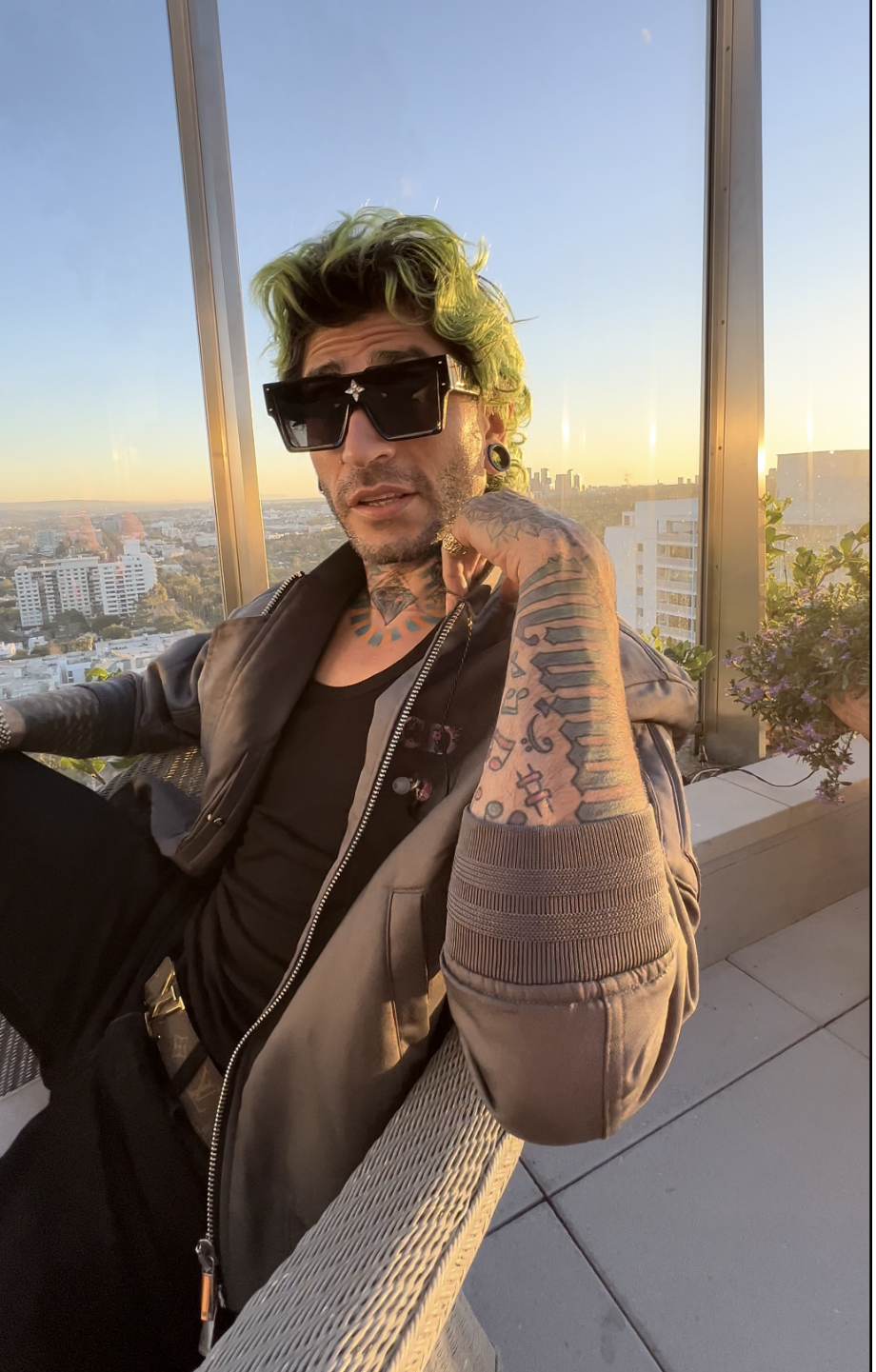Post-Traumatic Stress Disorder, or PTSD, can have an interesting impact on the brain. Many of the greatest artists and musicians of all time are suspected to have had PTSD (Frida Kahlo, Vincent van Gogh, and Maya Angelou, just to name a few).
To put it in simpler terms, experiencing great trauma can kick-start the brain’s ability to be creative, allowing people to make art that’s better than ever before. The connection between trauma and greatness is no coincidence; it’s an unequivocally positive light that emerges from personal darkness.
Nicaraguan musician The Pirate is a great example of this phenomenon, though it would be far too reductive to allow trauma to define him.
Growing up in war-torn Nicaragua, The Pirate (born Luis A. Lopez Soza) was surrounded by the noises of a country in turmoil. A Walkman, given to him by his mother, provided a welcome escape from the chaos around him. The Pirate was absorbed in music from a young age, building a foundation for Pirate’s career and establishing influences like Bob Marley, Peter Tosh, El Chombo, Tego Calderon, and Paco de Lucia.
After adolescence, The Pirate left his home country to travel across Latin America and Europe and lived in Milan, Italy for a decade. During this time, he experienced all kinds of new music that Italy, Spain, Germany, Switzerland, Belgium, Portugal and more had to offer, like flamenco and electronic.
When his time in Italy had come to a close, The Pirate returned to Nicaragua to pursue his dream of winning a Latin Grammy. Unfortunately, things were still not peaceful. Pirate wrote a song about the political situation at the time, “Insurrección”, which got him in some hot water with the Nicaraguan government. At the time, they were harshly punishing anyone who spoke out against the government or even participated in anti-government protests– unlawfully detaining, beating, and even killing young people who dared to speak out against the dictatorship.
Because he had spoken out, Pirate’s life was now in danger and he was forced to flee his home. The borders of Nicaragua were closed, so he fled through the jungles and traveled nonstop for five days until he reached the U.S. border– over 2,000 miles away from where he’d started out.
Pirate was happy to reach the United States border and is thankful for the help he was given by the border patrol. After a few weeks, he was permitted to leave for New York, where his mother was living at the time. Upon reaching New York, he was diagnosed with PTSD but didn’t let this diagnosis or the trauma of his long journey to the U.S. stop him from making music.
While in New York, Pirate was discovered by the people who run GUM Studios, who made the decision to start their own offshoot independent label, GUM Records, in order to sign him. GUM Studios has worked with many music superstars to film music videos, including Dua Lipa, Jennifer Lopez, Bad Bunny, and many more. A representative of GUM stated “We started GUM Records after discovering him… we see talent every day, and GUM is betting on The Pirate.”
Gaining life experience can help anyone grow as a person, and it’s safe to say that The Pirate’s experiences– traveling Europe gathering musical inspiration, and fleeing his home country alike– have allowed him to evolve into the multitalented, eclectic musician he is today.
Known as the King of New York Rumba, The Pirate has shared stages with countless internationally successful artists at festivals and on television and is recognized for his rumba-reggae style. He’s also known for his bold sense of personal style– a look through his Instagram account will reveal his one-of-a-kind style. With a captivating look, commanding presence, and myriad talents, The Pirate is more than ready to take the music industry by storm and earn a spot at the top.
Watch Pirate’s latest music video for Suavecito Mami on VEVO, and check out his new single Sunday Funday coming out April 20 on all music platforms.
For more of The Pirate: Website • Spotify • YouTube • Instagram
This is a Contributor Post. Opinions expressed here are opinions of the Contributor. Influencive does not endorse or review brands mentioned; does not and cannot investigate relationships with brands, products, and people mentioned and is up to the Contributor to disclose. Contributors, amongst other accounts and articles may be professional fee-based.

